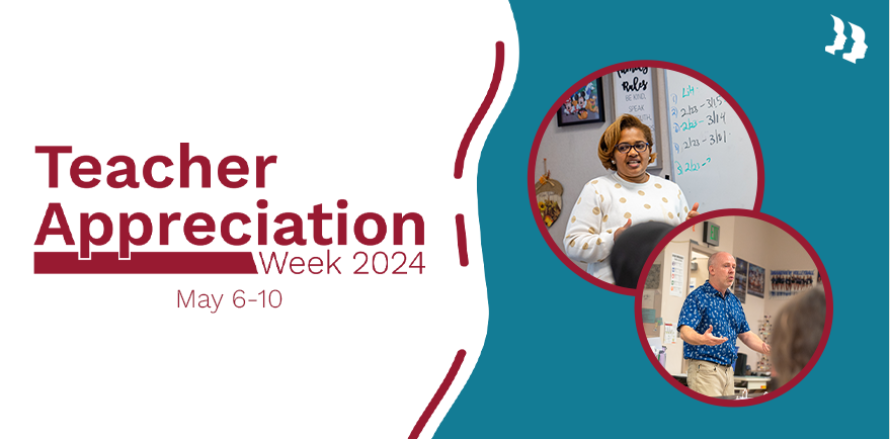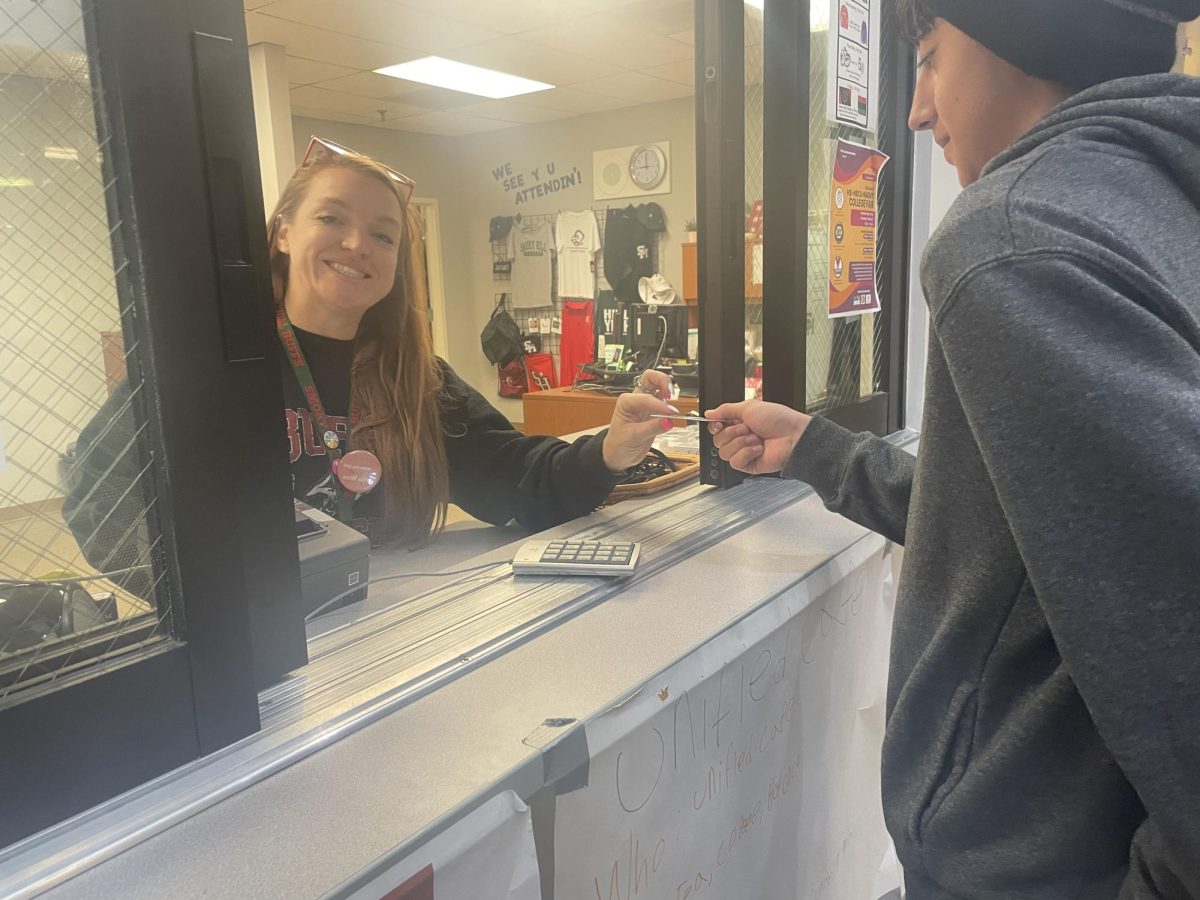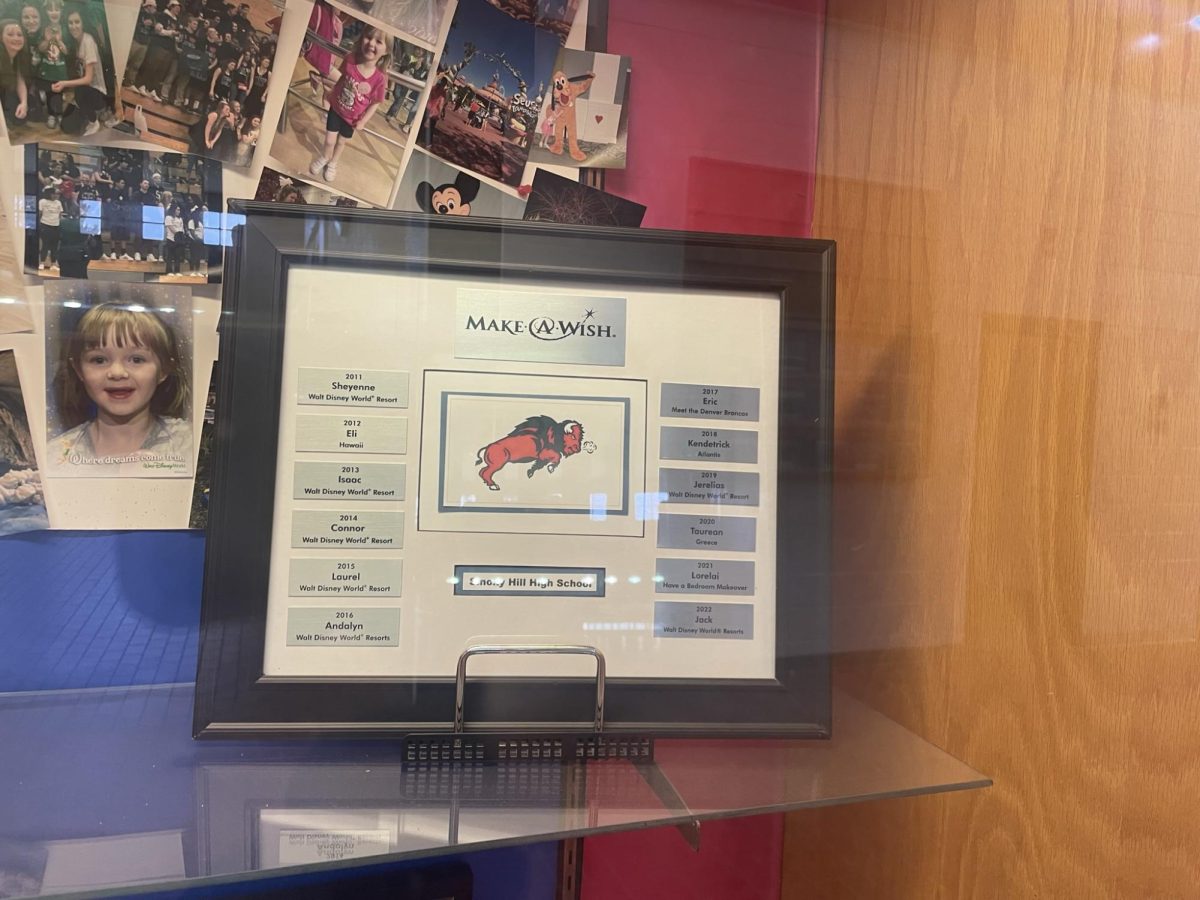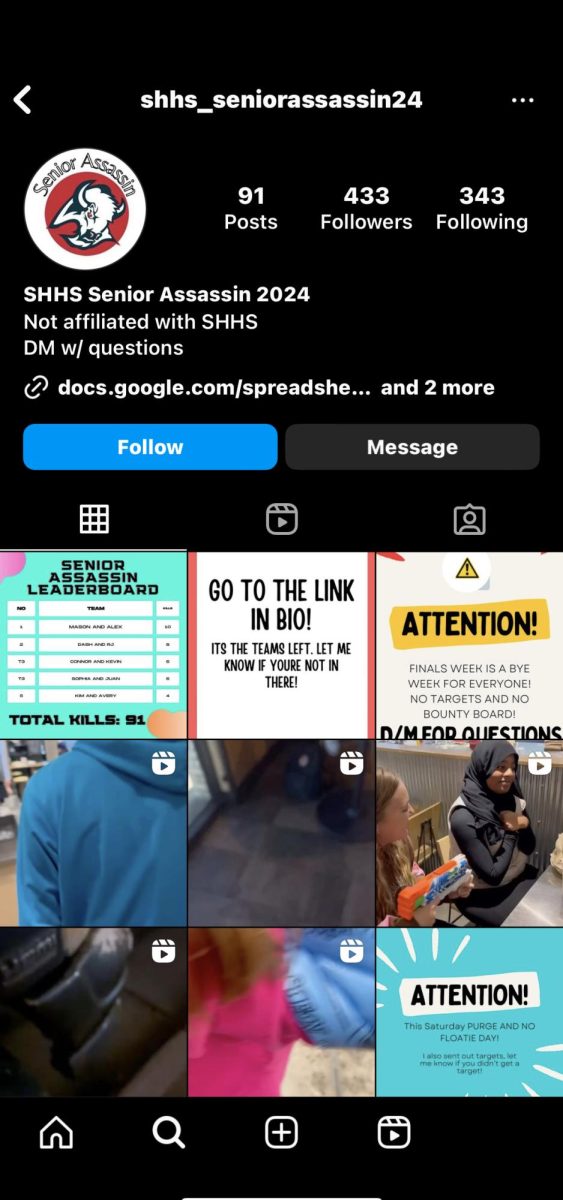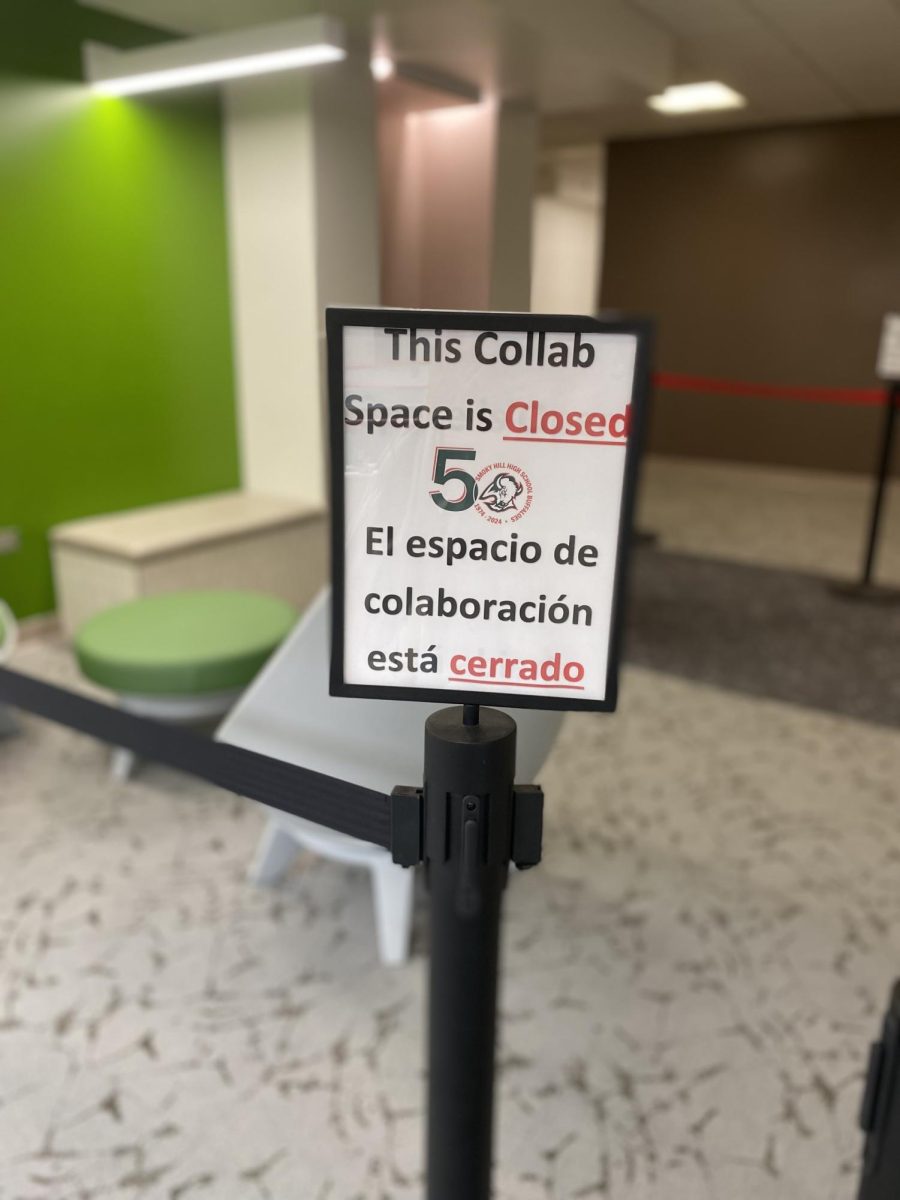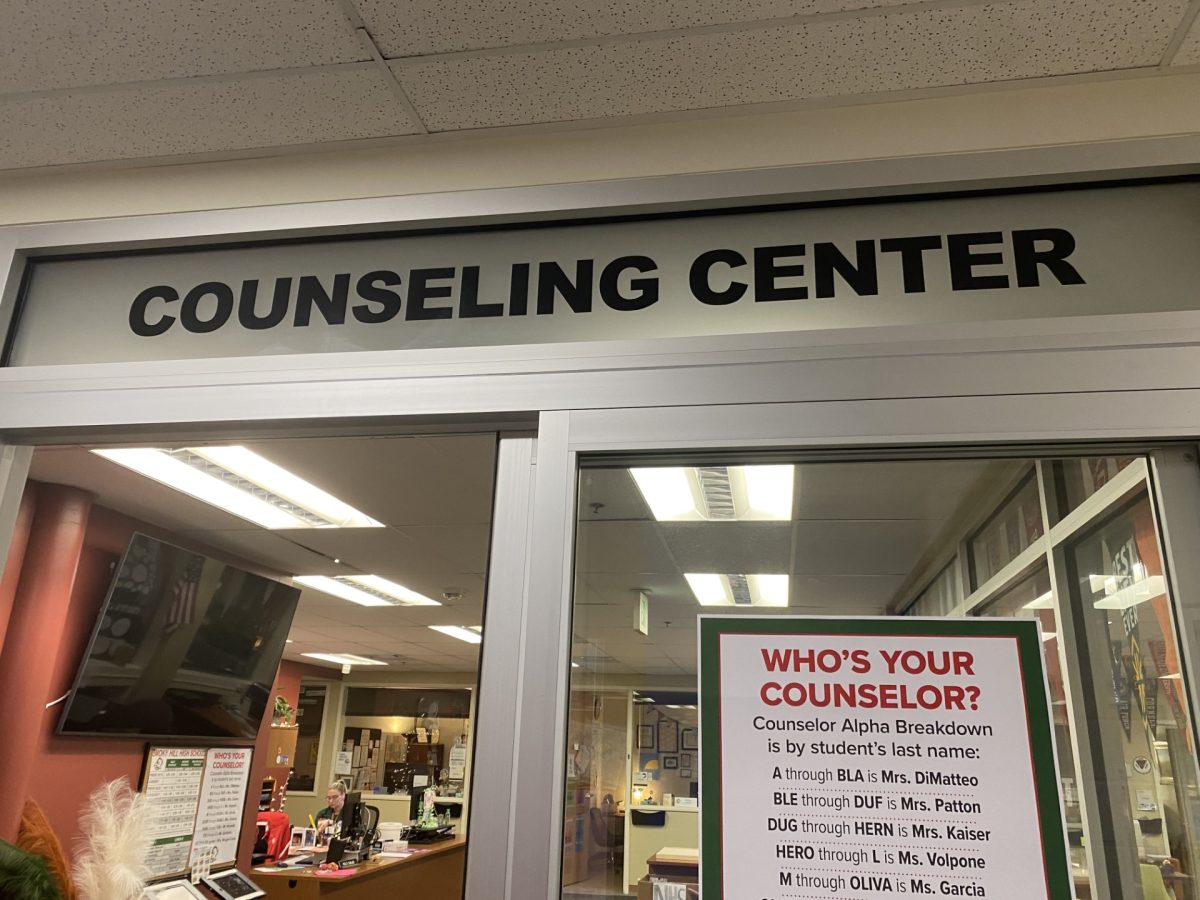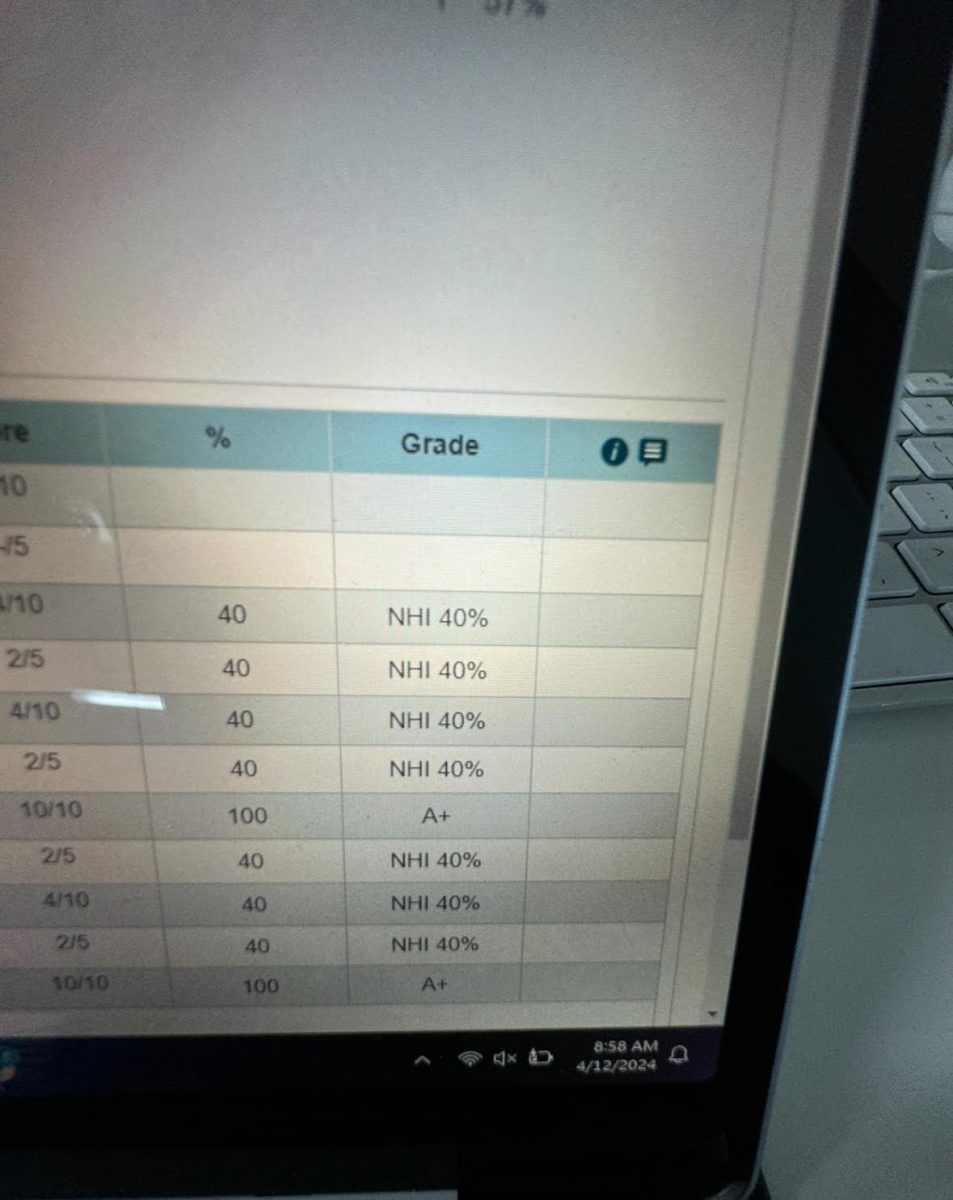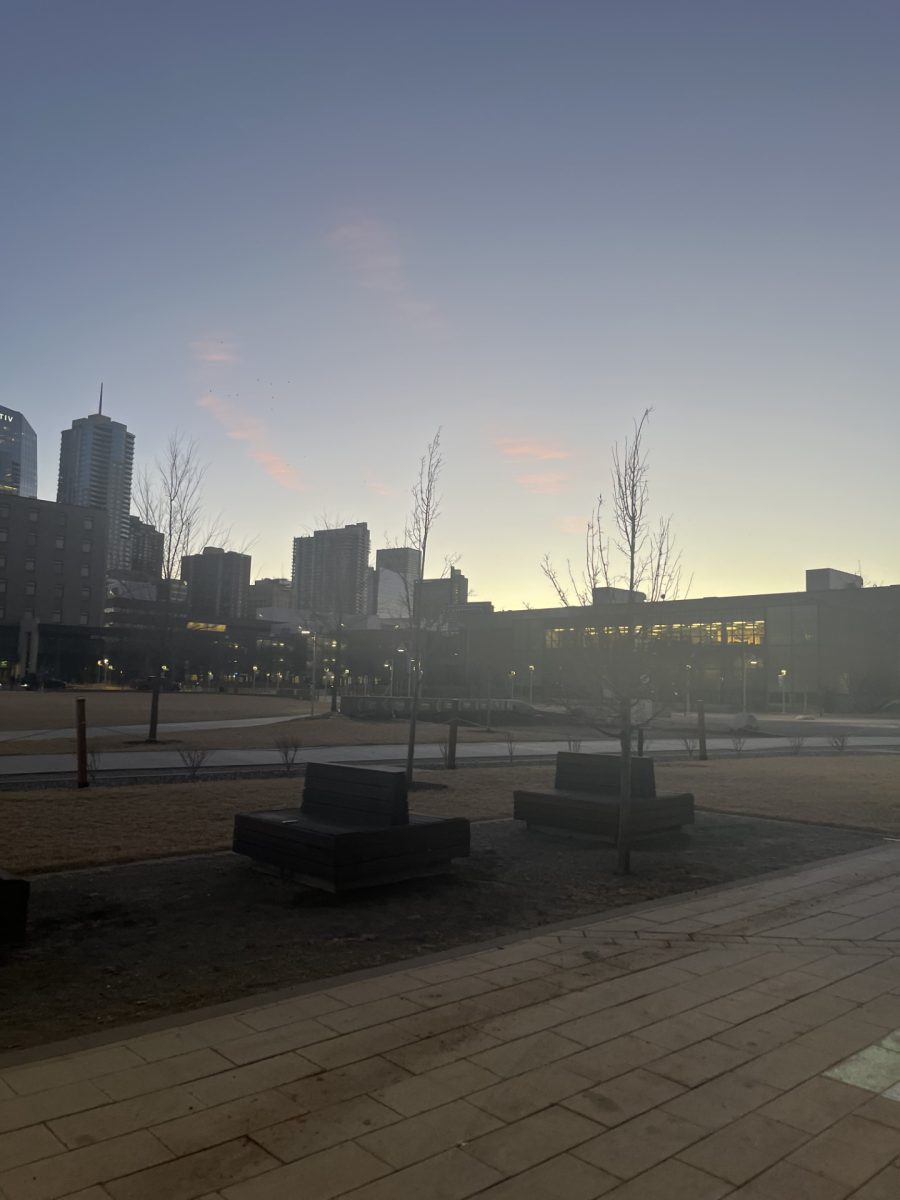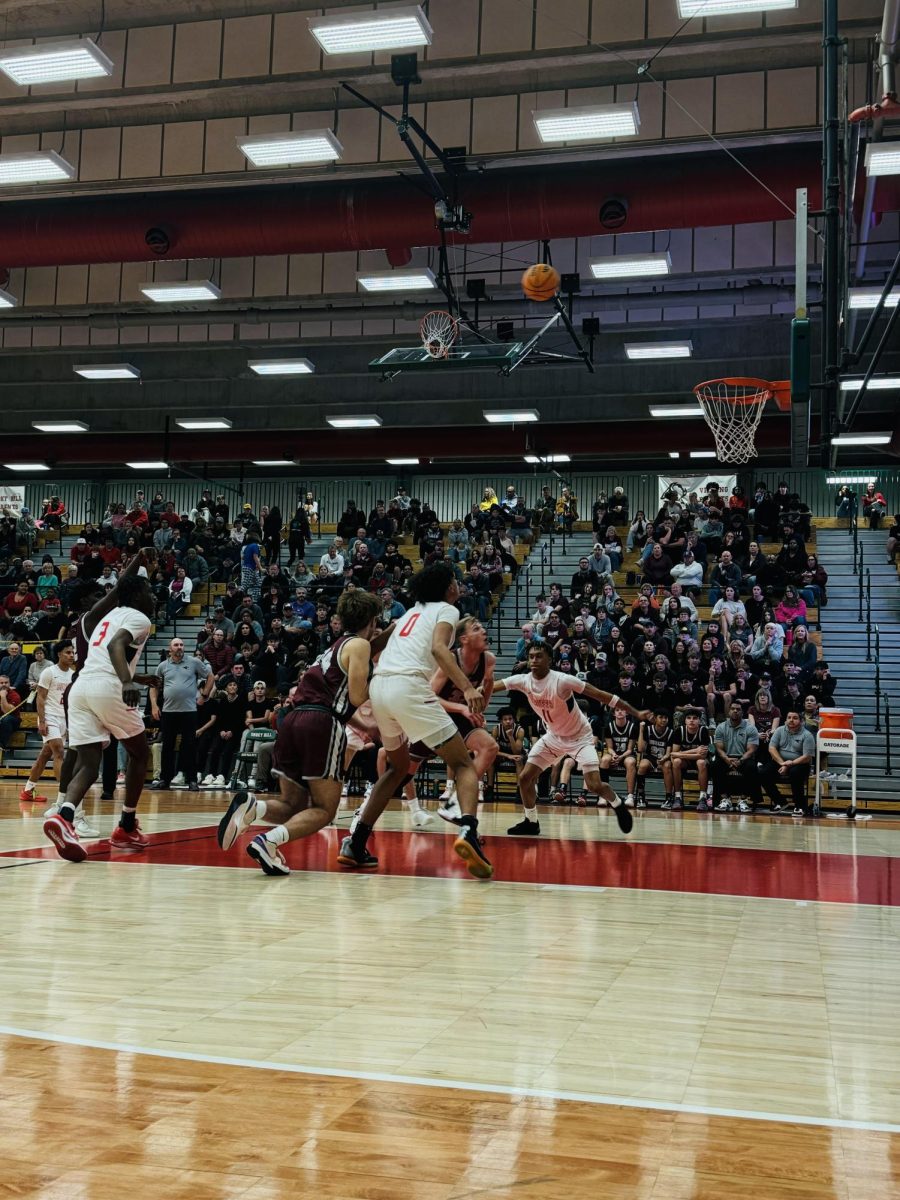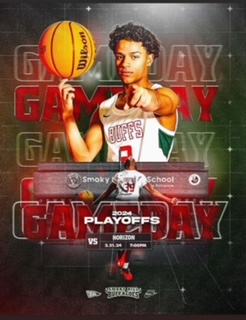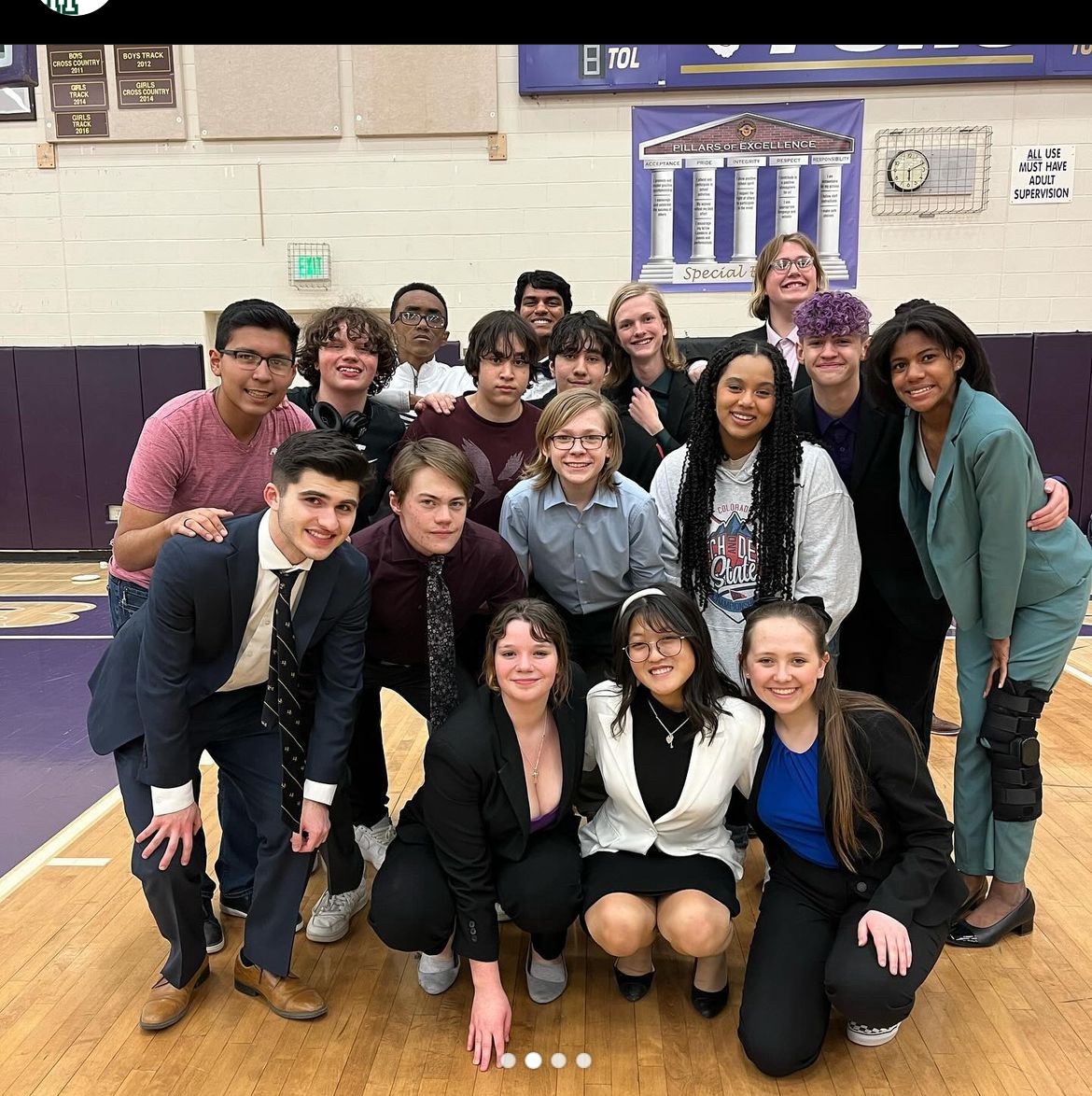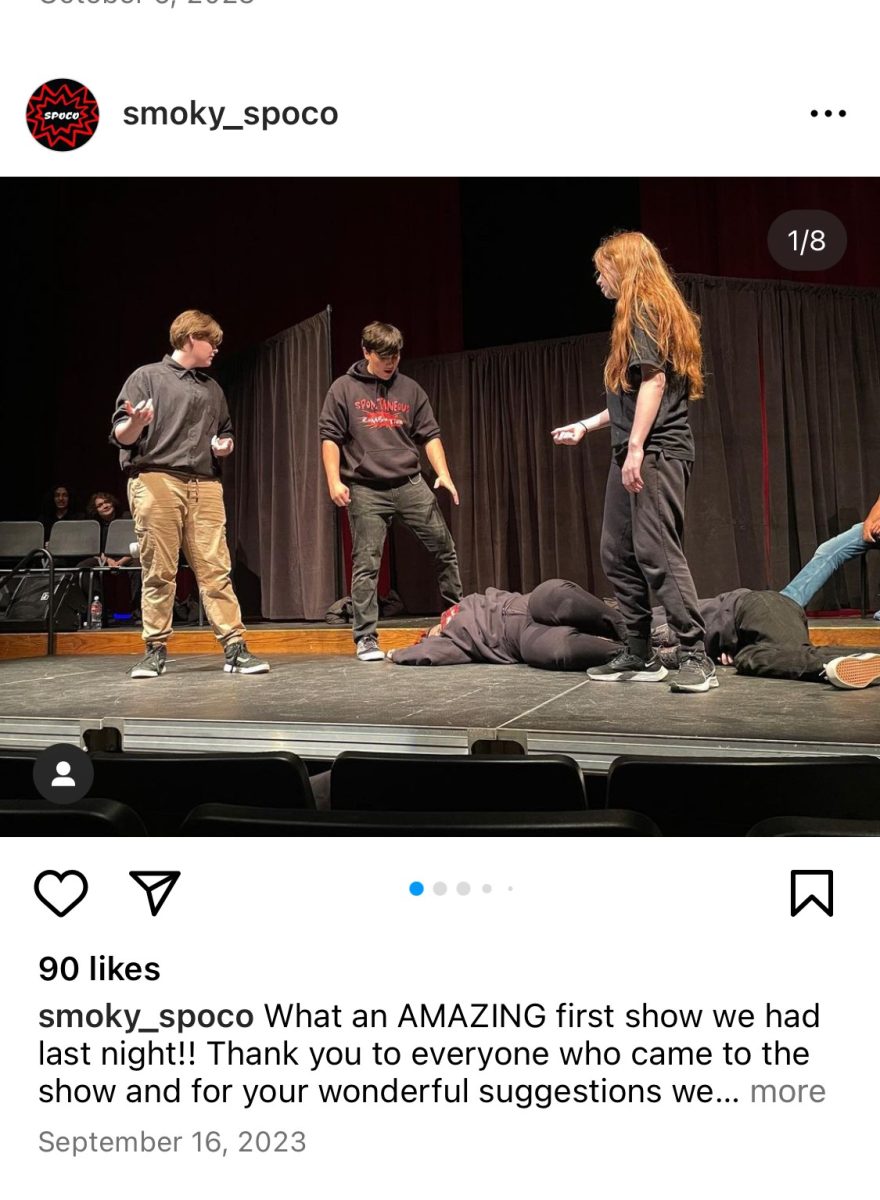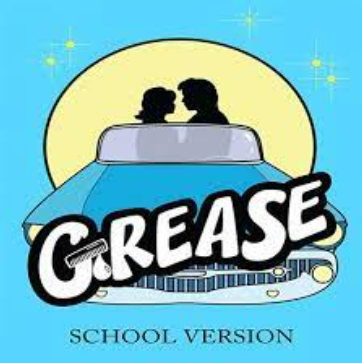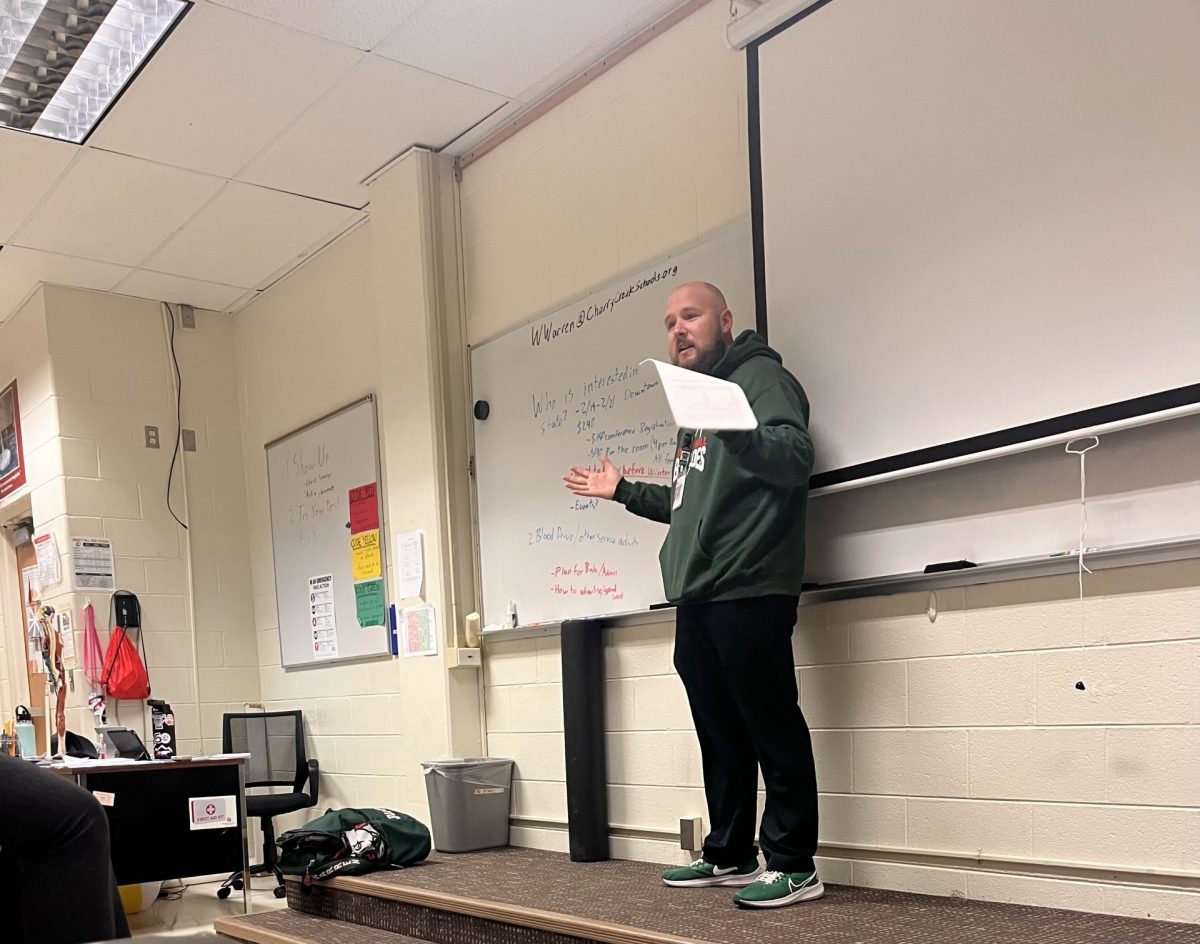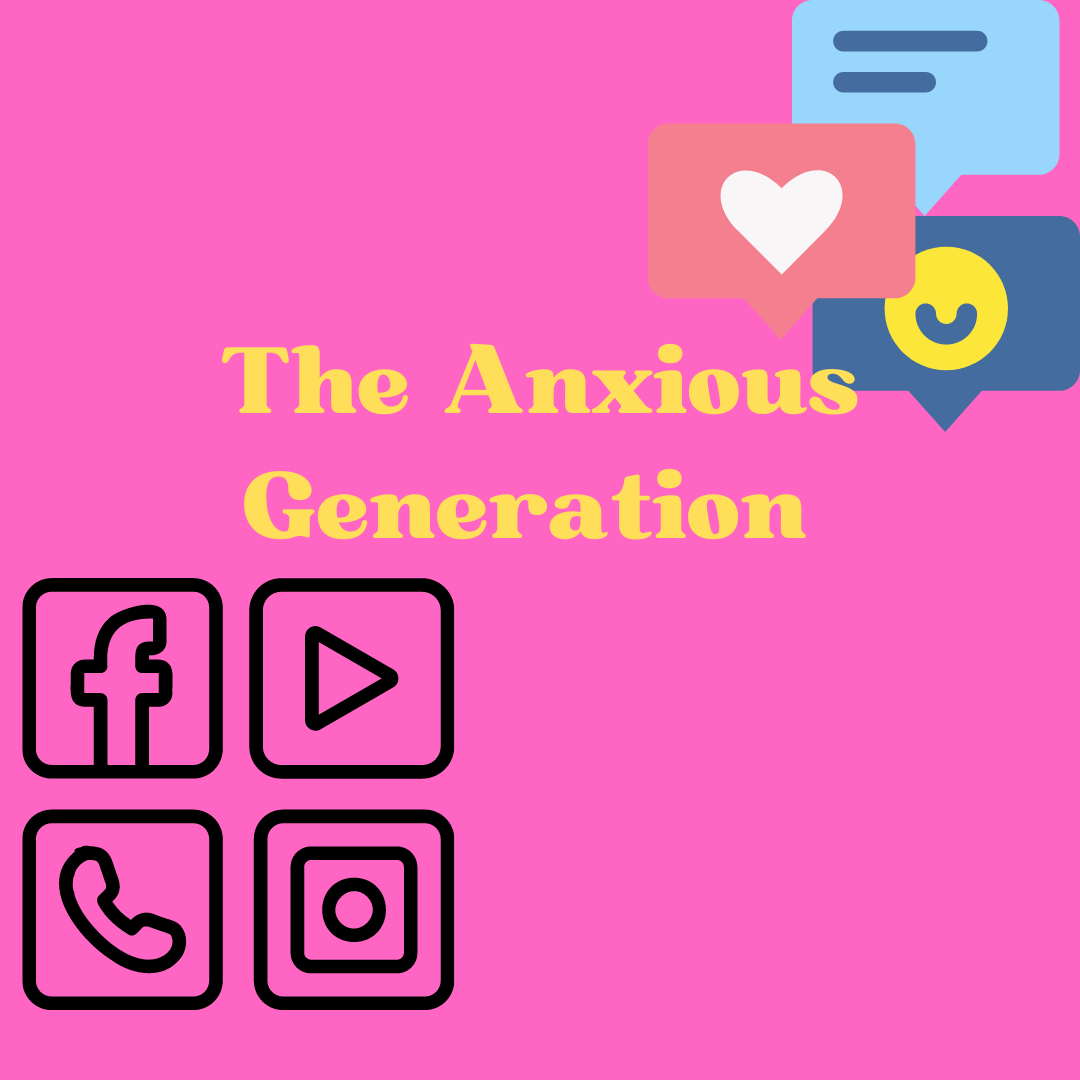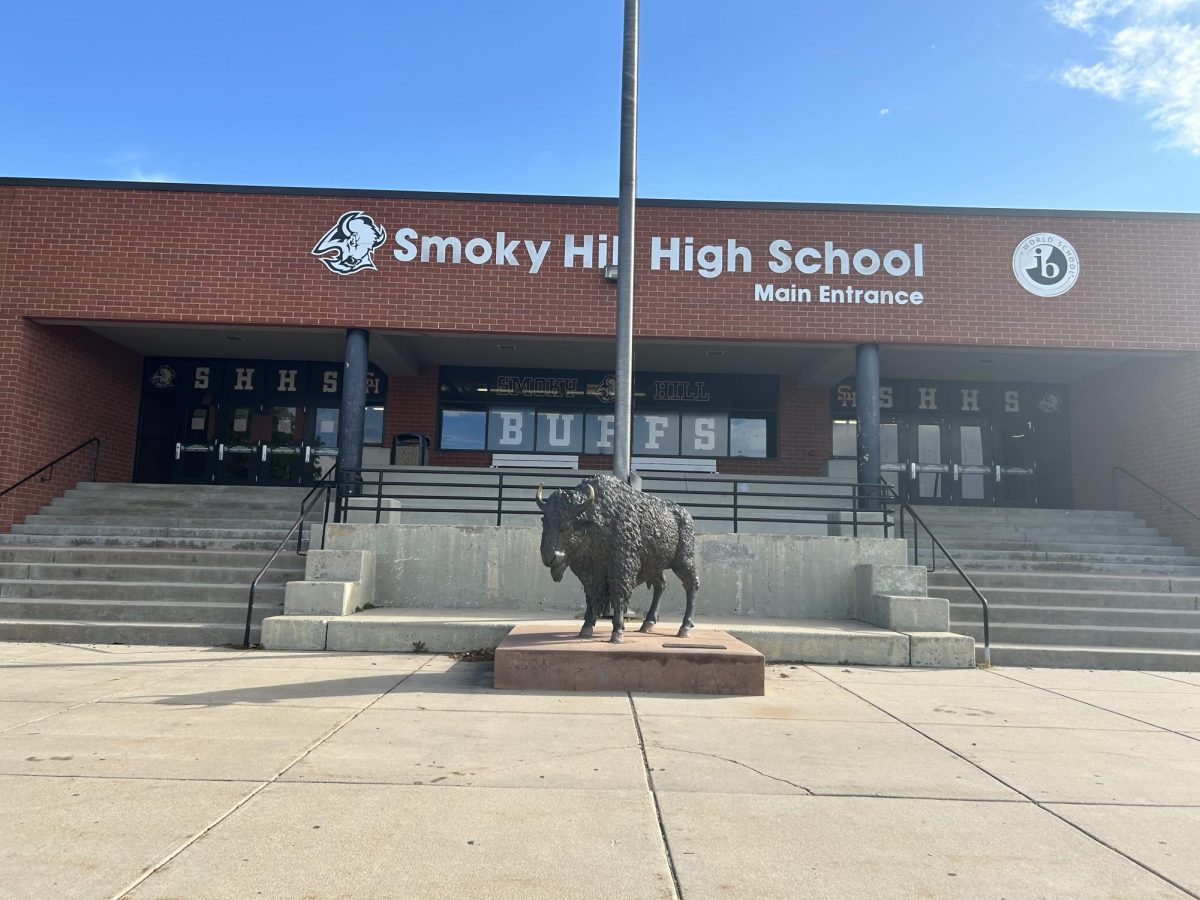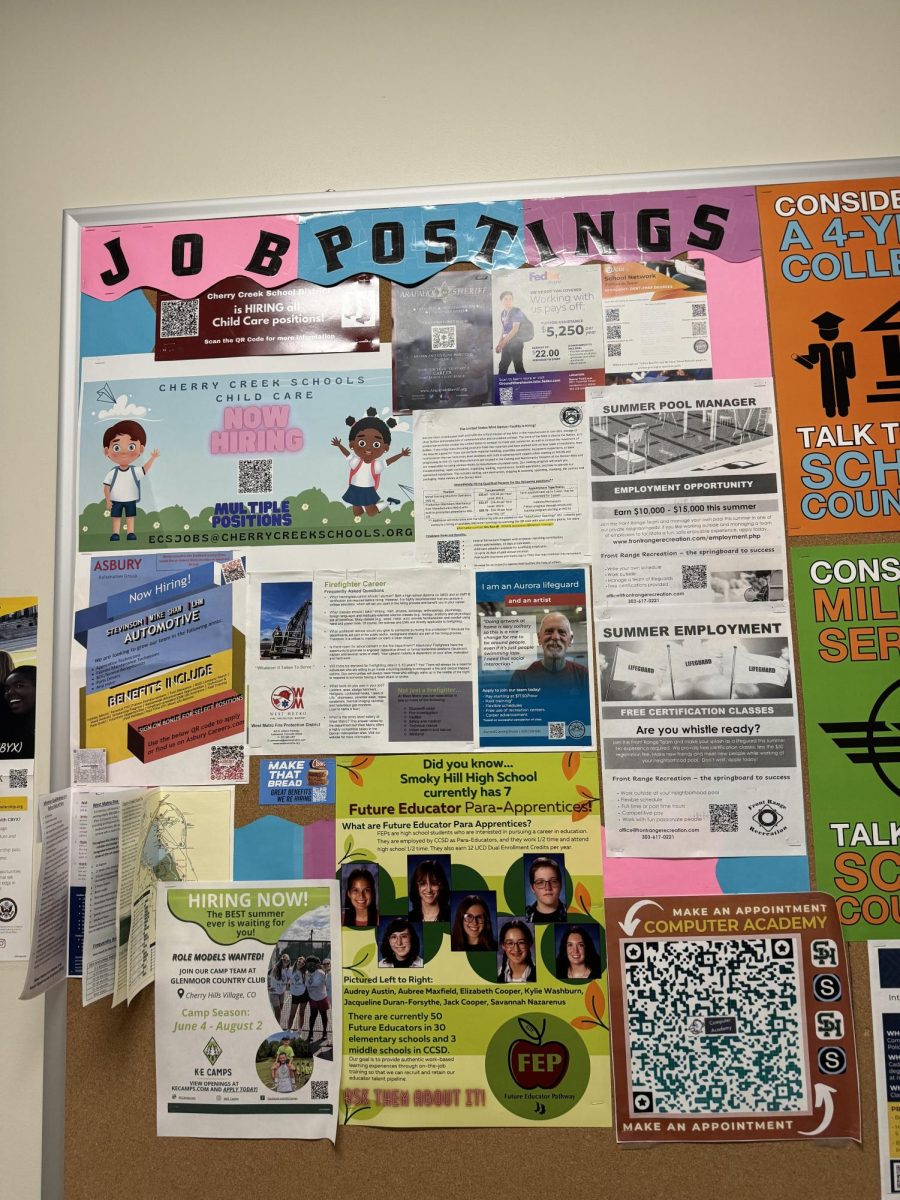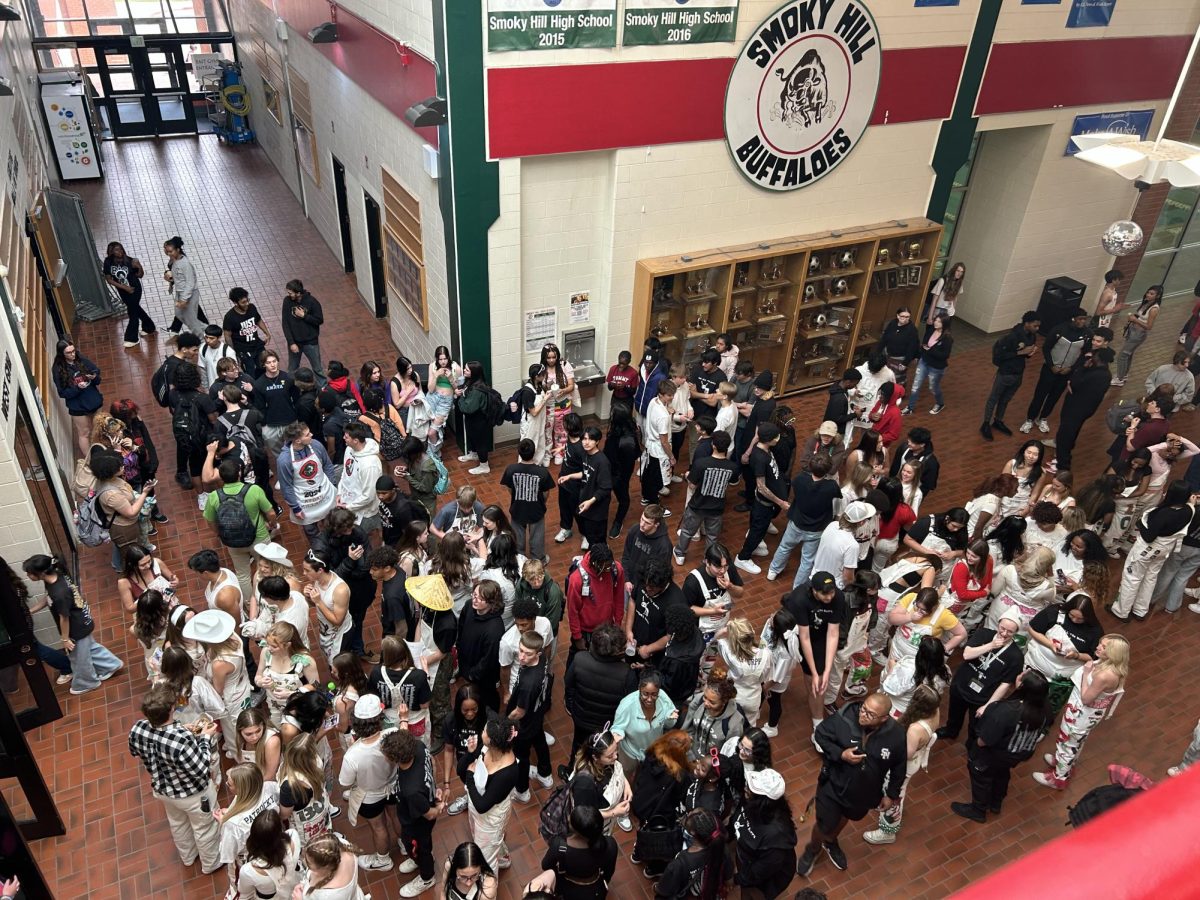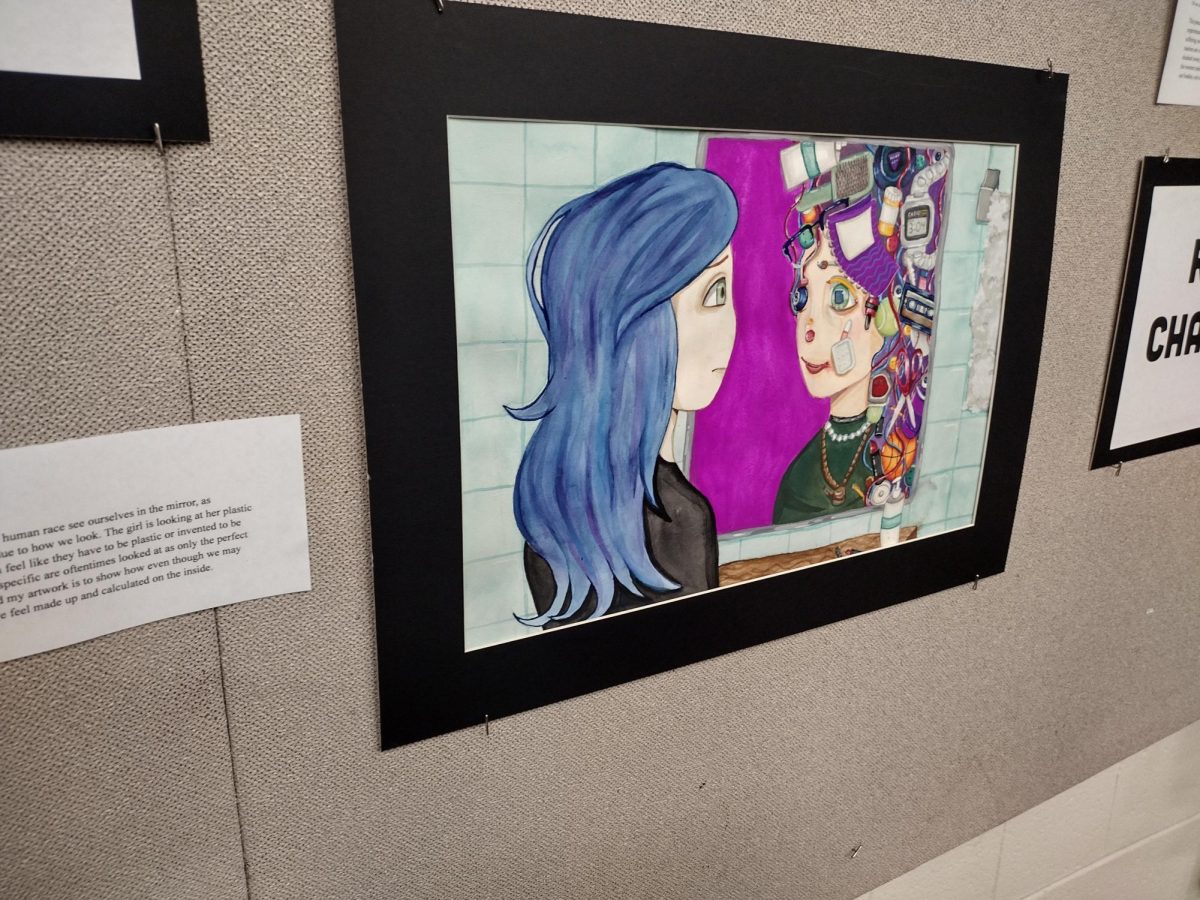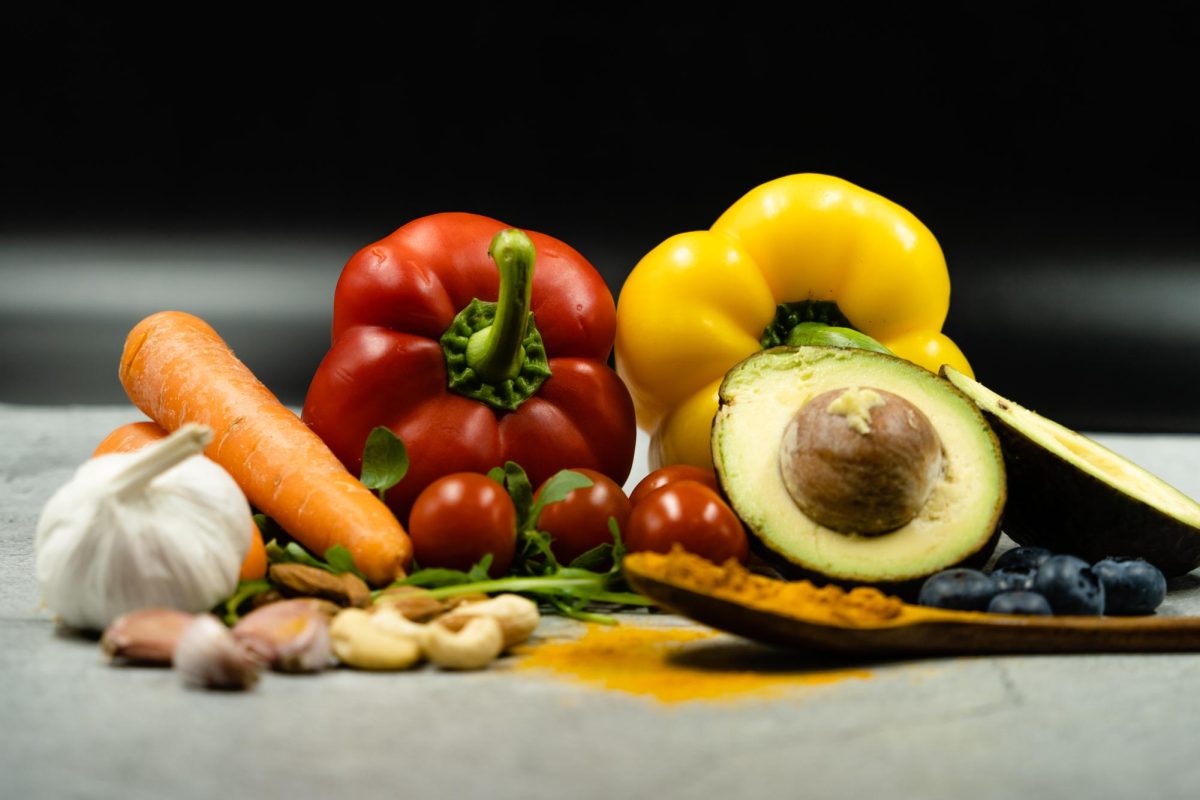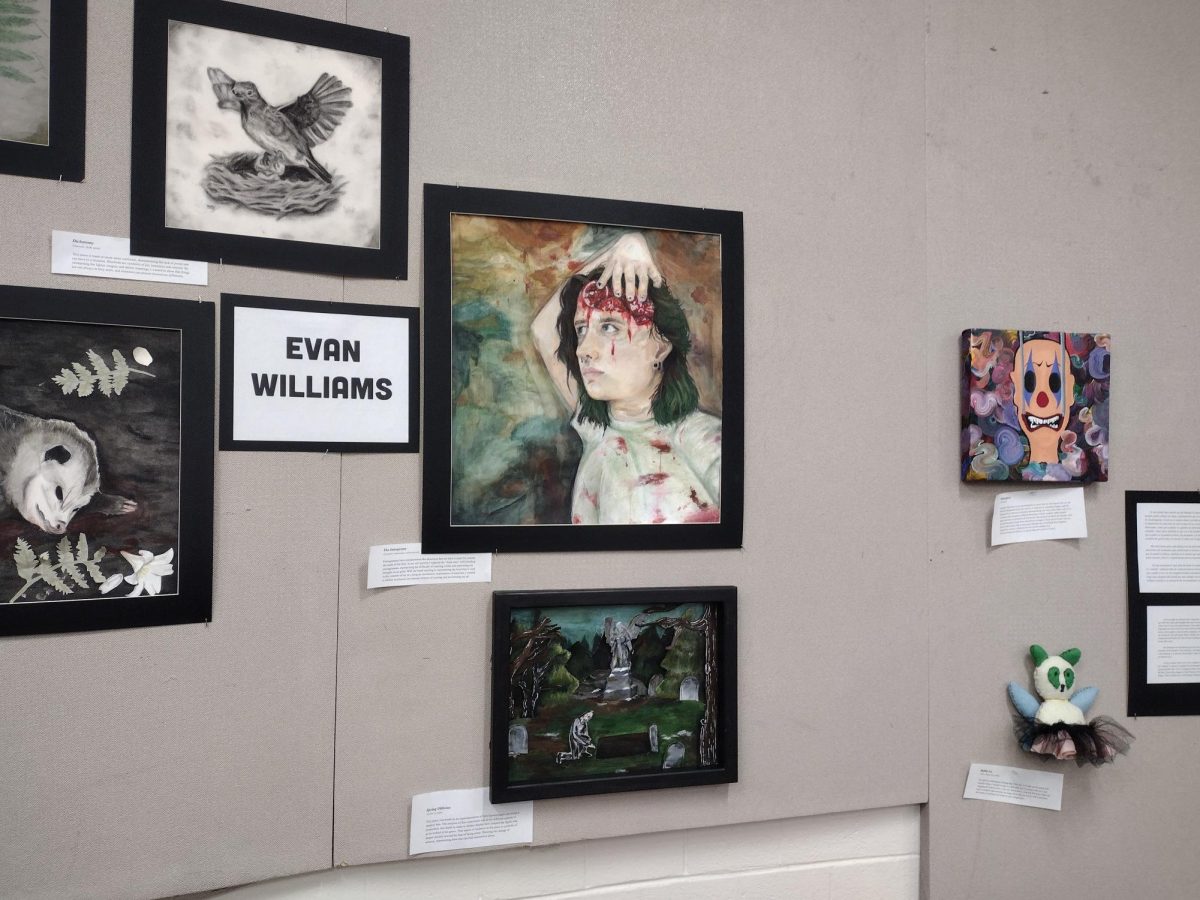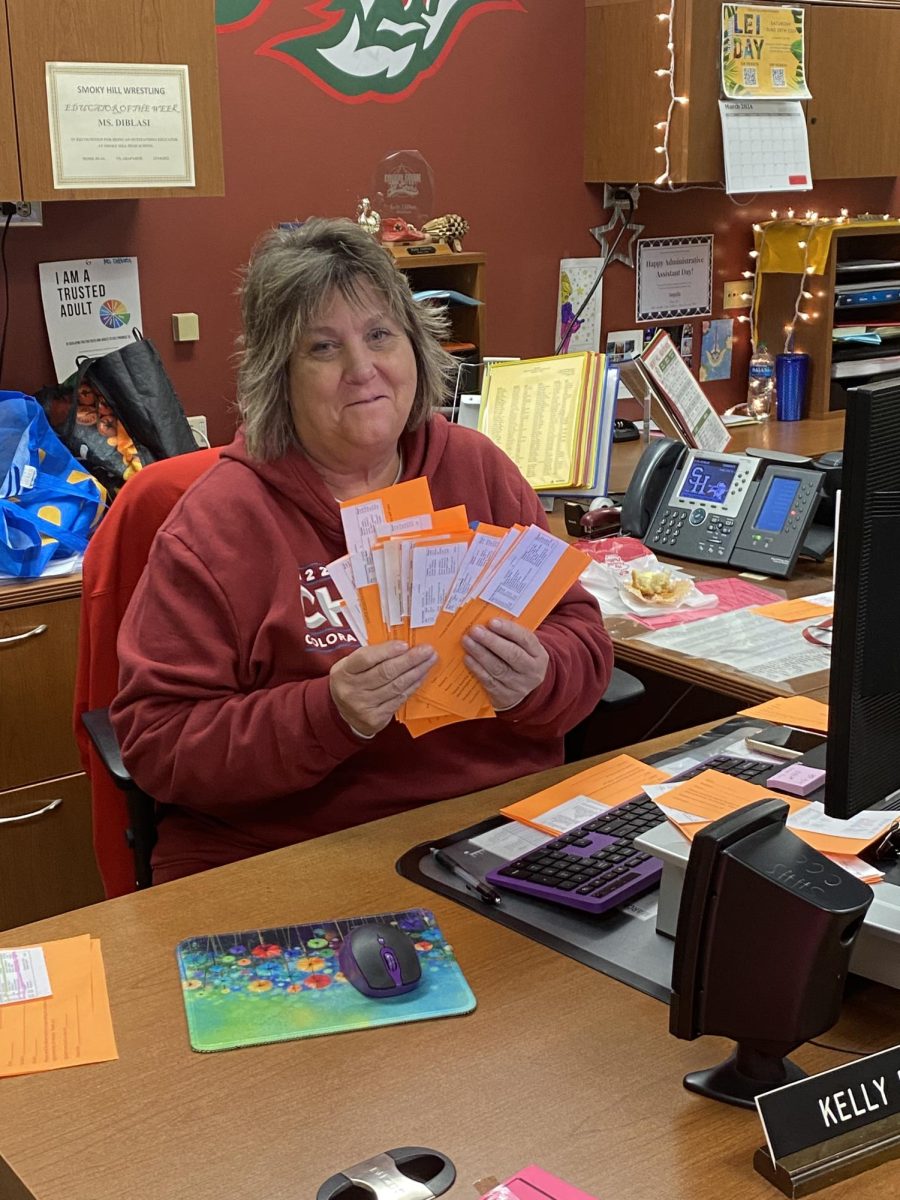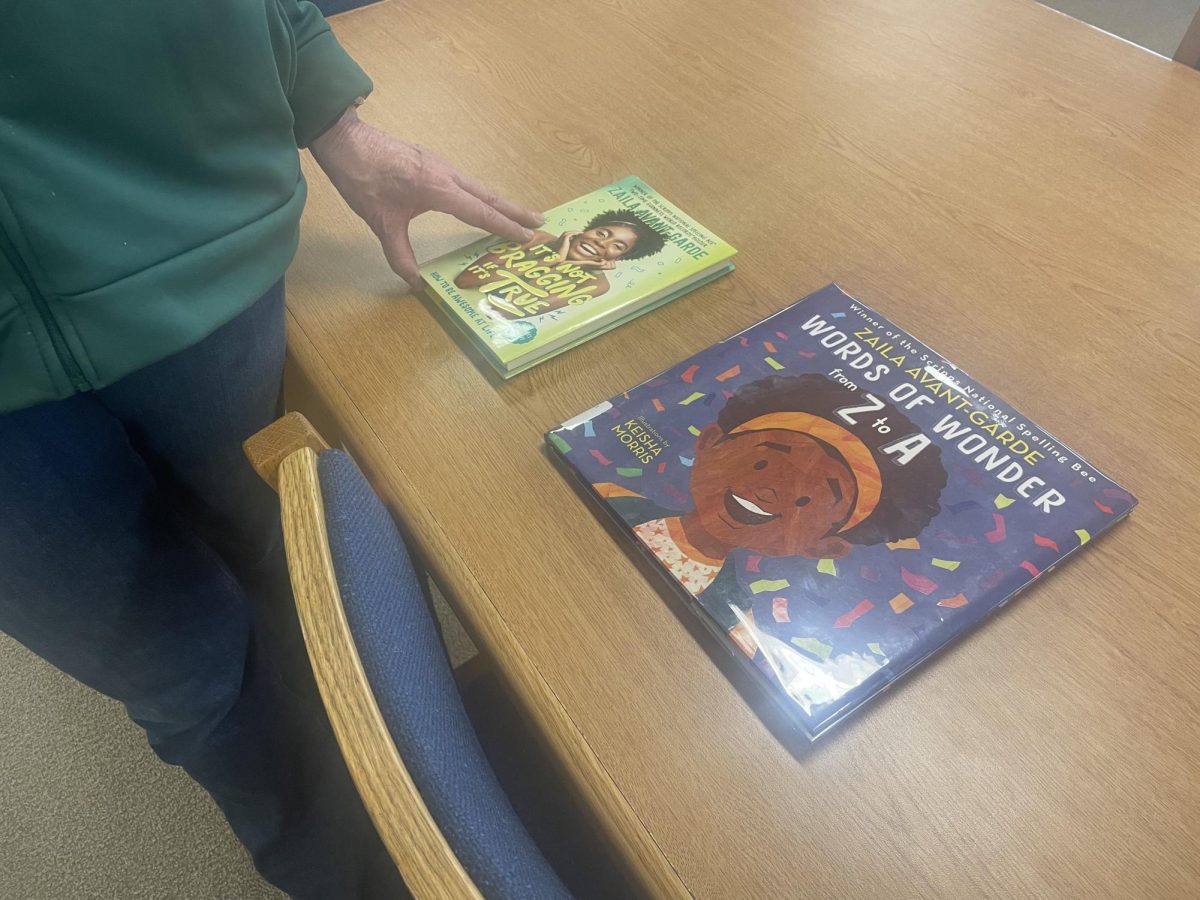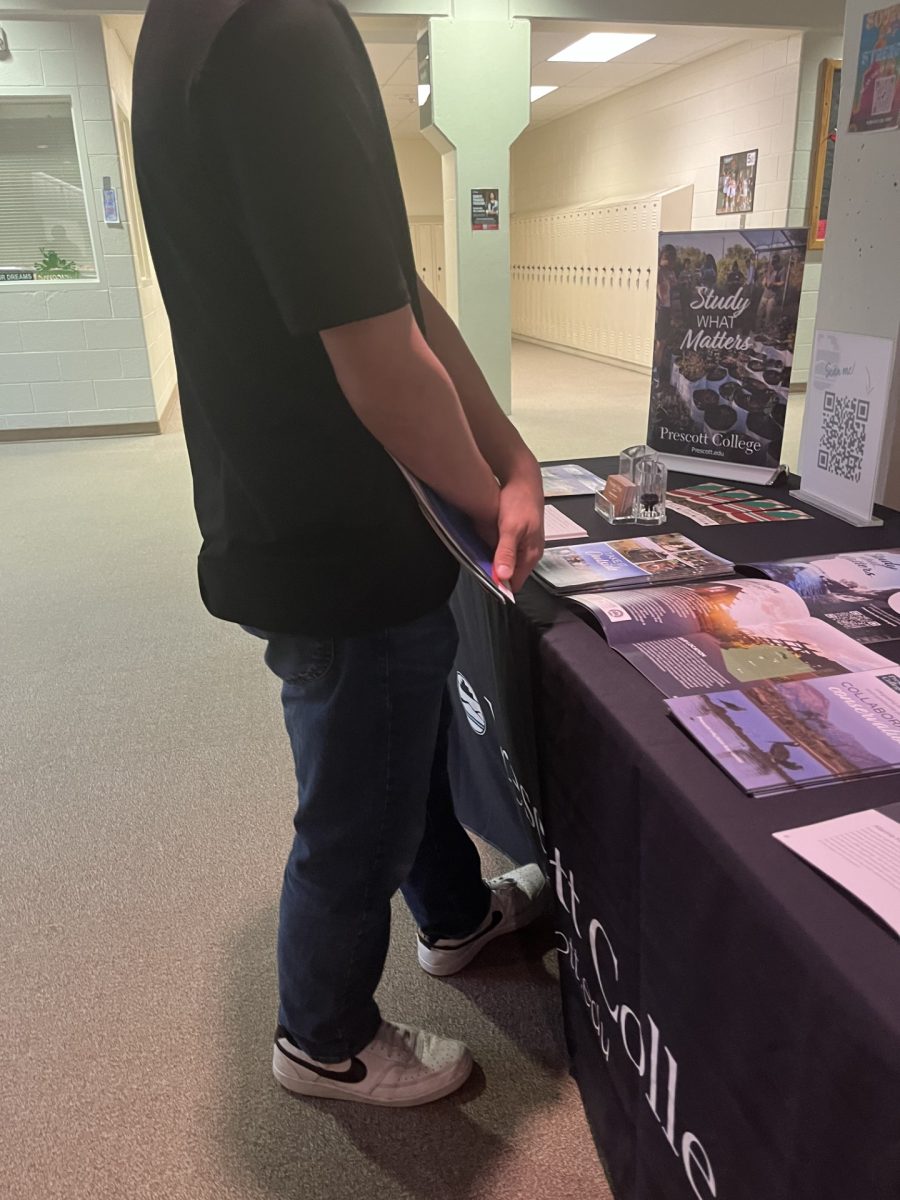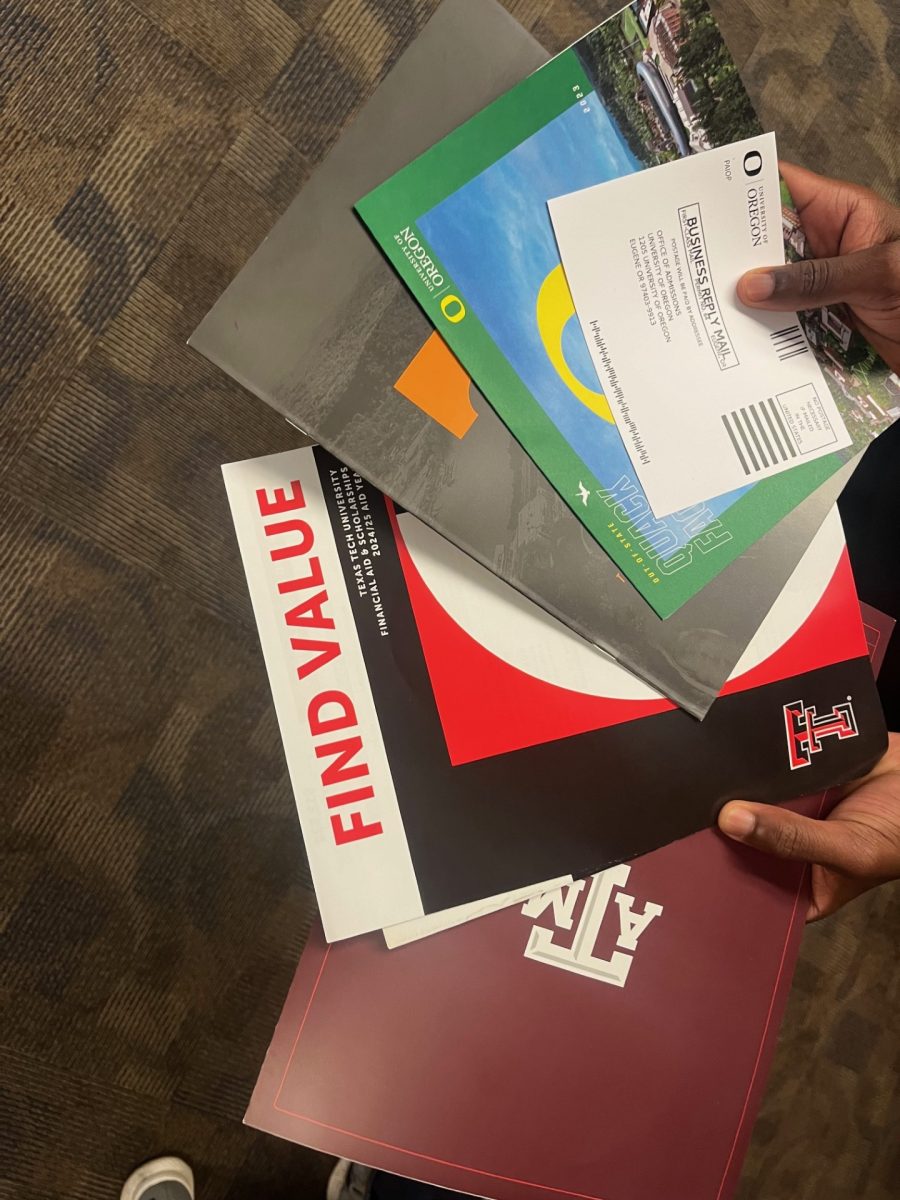Over the years high school culture has been affected by experiences from the people who attend the school whether they be teachers or students. Many of them had lots of differing opinions on the matter.
Athletic director, John Thompson, who graduated from Smoky in 1981, said this about the change of students over the 50 years that the school has existed: “I think every teacher, every educator can reflect back on their experience to see how things have changed. I think that the only difference is, you know, having been around the building as a student, understanding where people would hang out what they would do, how they would kind of run through the day in this setting. A lot has changed out here since since I was a student even in terms of the residential area and businesses and things like that. But I just think understanding what it’s like to go from one class to the other or where you go and you’re off or whatever’s you know, helps me get it okay,”
Thompson also said, “You know, this is my opinion, of course, but I think we think we’re empowering kids and we’re actually taking responsibility away from them. Because we’re trying to help and I can appreciate us trying to help but you know, ultimately, we’re responsible for what we do. And I think that we’ve I think there’s more of an effort to try to help everyone fit in and help everyone get along. But sometimes I think that takes away from a kid’s personal power to try to navigate that,”
Students reflect on how covid has brought about positive changes, allowing for more shared experiences and activities, like painting overalls with friends.
Alani Alvarez (12) said, “I think since I started my freshman year, during COVID, it’s definitely changed a lot. We’re able to do more pep rallies, we’re able to do just more stuff together and outside of school than I was able to do my freshman year because of COVID. And then even just fun stuff, like putting your overalls on and painting them with your friends is something that you get to do now, whereas like freshman year, you wouldn’t have been able to do because we had to quarantine. So I think even just little things like being able to paint overalls together has changed,”
Over time, Smoky Hill High School has grown to a school with a strong school spirit strengthening the community over the years
Kathleen Sheil, who graduated from Smoky in 2002, said, “Mr. Cohen, the activities director, was not at SHHS when I was a student and I really, really have loved and appreciated the amount of time effort and energy he dedicates to creating the Smoky Hill community. Sports, clubs and activities seem to be more united with activities like the Spirit Bus, Wish Week and the awesome spirit days,”
Smoky Hill has done a bunch of creative traditions over the years, but over the year things have changed.
“So there’s, you know, things change. Time changes. There’s more sports offered now. We’ve had to restructure some of the Performing Arts stuff, marching band, for example, as a class when I was here, and we would extend through the day and for a variety of reasons, it couldn’t be a class anymore, so that now has become an extracurricular after school. Make a wish, for example, didn’t even exist then. So that’s something that’s built up I mean, that, you know, as times change, we used to have a bonfire for homecomings. You know, we can’t do that anymore. Well, the tennis courts are great. You know, it’s like a fifth cheesy 50s movie or something, you know, but it’s fun. We had a good time. But there’s obviously problems with that, that you could imagine, and some of those came up and so we don’t have bonfires anymore, but I mean, you know, life changes and we try to keep up and try to continue with at least the pride of packing a gym for an assembly. Which has always happened,” said Thompson.
The school’s commitment to supporting students and fostering an environment where everyone has the opportunity to succeed.
Thompson also said, “Sometimes we don’t have a choice, like even talking about the addition of sports and losing some sports because we don’t have participants or whatever it is. Those things change. That’s true also, for example, Performing Arts where some of the structure of some of those bands and choirs change based on the enrollment we have or the instructors we have. But I think as a school one thing we’ve always wanted is for people to be proud of their school and of each other and I think that continues. Always we want to make sure we’re battling for each other and supporting each other. And I think that’s where we come from is always the idea that we want to support our students and give them the opportunity to succeed. That’s not going to change,”
Ms. Sheil talks about the importance of continued communication and listening by the school staff to ensure a smooth transition and alignment with student interests and preferences.
“The fact that SHHS students can create their own clubs and have such a voice in how they participate in the school’s traditions naturally adapts to the evolving needs of today’s students. I think as long as Smoky staff continues to listen to students this will be an easy transition,” said Sheil.
Being former students can allow teachers to appreciate the diversity and academic difficulty of the school. Now, this is what a teacher has to say about it.
Juliana Hong, who graduated from Smoky in 2011, said, “I think that having gone here allows me to reflect back on my own experiences at Smoky Hill High School and to see all of the diversity or the academic rigor and everything else that is at the school. But now I just see it from a teacher perspective, which is a little bit more interesting. I was very much in the IB program and so just kind of one track. And then I was aware of other things going on in the building, but I think as a teacher, teaching so many different levels on grades, I think I get to see a lot more,”
The difficulties and challenges of the modern education system in preparing students for their future.
Mr. Thompson said, “I think I could be the old person and go ‘We have kids that don’t work as hard.’ But, I don’t think that’s true. I think there’s a shift in how people go through the college experience and try to get to college, or whatever they’re, doing after high school. It’s become kind of more formalized, as opposed to just saying ‘I think I want to go to whatever school’ you apply to, and now you have people that are tutoring students on how to apply to college and things like that. I think that takes away some of that personal responsibility from kids and it’s like the structured process you have to go through. There’s more AP classes and things like that now than we had and, and we may be leaving a few people behind because we’re trying to get so far they miss out on the net that we cast,”
Sheil believes that students are now more comfortable expressing their opinions to staff members.
Sheil said, “The biggest shift I have seen has been in the dynamic between students and the adults in the building. This hasn’t been all good or all bad. I do think that this has also helped many students form a connection to adults in the building as well, which creates more of a sense of family and community,”
Like, Sheil, Hong sees changes in the student community and feels change has to happen.
“I think the most important thing is to see what the students want, what the students need and to talk with them to figure out what traditions should be kept and what needs to be changed. [Also,] what needs to be added because [just] as the school environment, the students evolve and change. We can’t just stay stagnant. We have to move with them,” said Hong.
Hong also said, “I feel like this is a result of this kind of technology and also COVID. But I do feel like students have a harder time staying focused in class. A lot of them are because we didn’t have phones, we [had] just started having phones. But now you guys have access to phones all the time. So I do think it’s a really big distraction. And so I think you guys do have a harder time paying attention in class. It was hard for us to because, sometimes classes weren’t fun, but we only had to deal with our own boredom and we didn’t have anything to do instead,”
Even students agree that social media plays a part in their school day. Junior Ty Davis said, “[Social media affects us] definitely in a negative way, I would say. I’m one of those people who doesn’t like social media. So I think that it negatively impacts, personal relationships in person, stuff like that,”
Like Davis, Grace Ehizuelen (11) said, “Honestly, I feel like there’s this hierarchy, in a way. I feel like social media really changes the way like students interact with each other. I do feel it changes the way they see other students, too. I feel like it does like more harm because, just cancel culture. People are more sensitive now because of social media,”
Junior year is expected to be met with same expectations as senior year, though with a few distinct differences.
Alani Alvarez (12) said, “I think for the most part, Junior year is notorious to be like a difficult year academically, and I feel like senior year is more of a laid back year. And I feel like with my experience, being a junior and a senior, that’s pretty accurate. And I don’t think necessarily as far as expectations, anything has changed. I think as your junior you’re expected to like give your all before you burn out for senior year. And then senior year is kind of the year where you burn out but that’s why teachers try and make things easy. Just so you don’t burn out as quickly,”
Over time, the culture of high schools has been shaped by the collective experiences of those within the school community, including both teachers and students. These individuals often hold diverse perspectives on the subject, contributing to the diverse atmosphere of high school culture.

